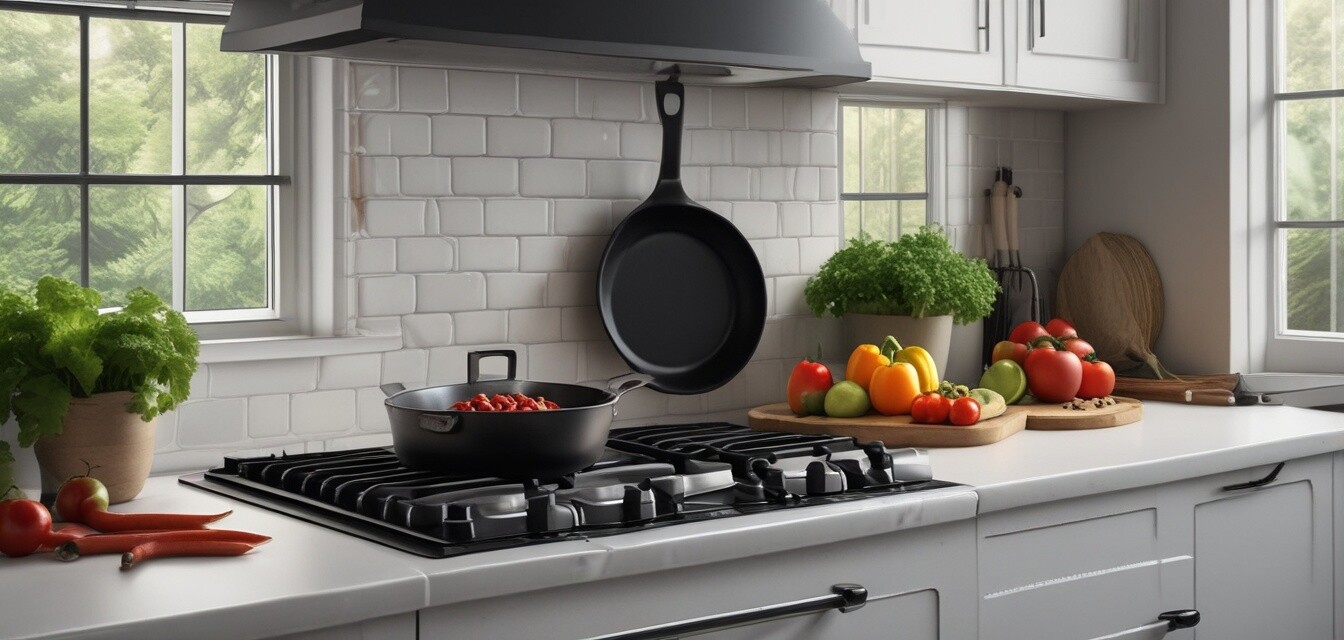
The resurgence of cast iron cookware in modern kitchens
We inherited one of these valuable assets from my wife's grandmother! You see, in recent years, the culinary world has witnessed a remarkable resurgence of cast iron cookware. From chefs in high-end restaurants to home cooks, many are rediscovering the benefits of using this classic kitchen staple. This article will explore the reasons behind this trend, the benefits of cast iron cookware, and tips on how to incorporate these timeless pieces into your modern kitchen.
Key Takeaways
- Cast iron cookware is durable, versatile, and can last for generations.
- They provide excellent heat retention and distribution.
- With proper care, cast iron pans develop a natural non-stick surface.
- Modern designs make cast iron cookware suitable for stylish kitchens.
- They can be used on various cooking surfaces, including induction.
Why cast iron cookware is making a comeback
Cast iron cookware has a rich history, once a staple in every kitchen. Recently, its resurgence can be attributed to several factors:
- Health benefits: Cooking with cast iron can increase iron levels in food, which is beneficial for health.
- Durability: Cast iron cookware can last a lifetime with proper care, making it a worthwhile investment.
- Versatility: This cookware can be used in the oven, on the stove, or even over an open flame.
- Aesthetic appeal: Modern cast iron pieces come in various colors and designs, enhancing kitchen decor.
Benefits of using cast iron cookware
Using cast iron cookware offers various benefits that contribute to its growing popularity among cooks:
| Benefit | Description |
|---|---|
| Excellent heat retention | Cast iron heats evenly and retains heat well, making it ideal for frying and searing. |
| Natural non-stick surface | When seasoned correctly, cast iron provides a natural non-stick surface without the need for synthetic coatings. |
| Eco-friendly | Durable and long-lasting, cast iron cookware reduces the need for replacements. |
| Increases iron in food | Cooking with cast iron can slightly elevate the iron content of meals, which can benefit those who need more iron. |
| Multi-purpose use | Cast iron can be used for baking, frying, sautéing, and even grilling, making it exceptionally versatile. |
Modern uses for cast iron cookware
In addition to traditional uses, modern cooking techniques have found new ways to utilize cast iron cookware:
- Oven baking: Use cast iron skillets to bake bread or desserts, taking advantage of their heat retention.
- Grilling: Perfect for outdoor grilling and barbecue, cast iron cookware can handle high temperatures.
- Casserole dishes: Many contemporary recipes have adapted to include cast iron as a baking option for one-pan meals.
- Serving presentations: With their beautiful designs and colors, skillet dishes can go directly from oven to table.
Tips for maintaining cast iron cookware
To keep your cast iron cookware in top shape, follow these maintenance tips:
Beginners Section: Care and Maintenance Tips
- Keep it seasoned: Always apply a thin layer of oil after cleaning to maintain the non-stick surface.
- Avoid soaking: Do not soak cast iron in water; it can cause rust.
- Use a gentle scrub: Clean with a soft brush or sponge to remove food without damaging the seasoning.
- Store in a dry place: Prevent moisture exposure to avoid rusting.
Conclusion
The resurgence of cast iron cookware emphasizes the blend of traditional and modern culinary practices. Its durability, heat retention, and timeless charm make it a must-have in every kitchen. Whether you’re an experienced chef or a beginner cook, investing in cast iron cookware is a fantastic way to enhance your cooking experience.
For more insights and trends about kitchen products, check out our other articles: News and Trends, Tips and How-To's, and keep yourself updated with the latest in Kitchen Gadgets & Tools.
Pros
- Exceptional durability and longevity.
- Natural non-stick properties with seasoning.
- Versatile for various cooking methods.
- Can enhance the flavor of dishes over time.
Cons
- Requires regular seasoning and maintenance.
- Can be heavy, making it less convenient for some users.
- Handle may get hot during cooking.
- Needs to be dried immediately after washing to prevent rust.